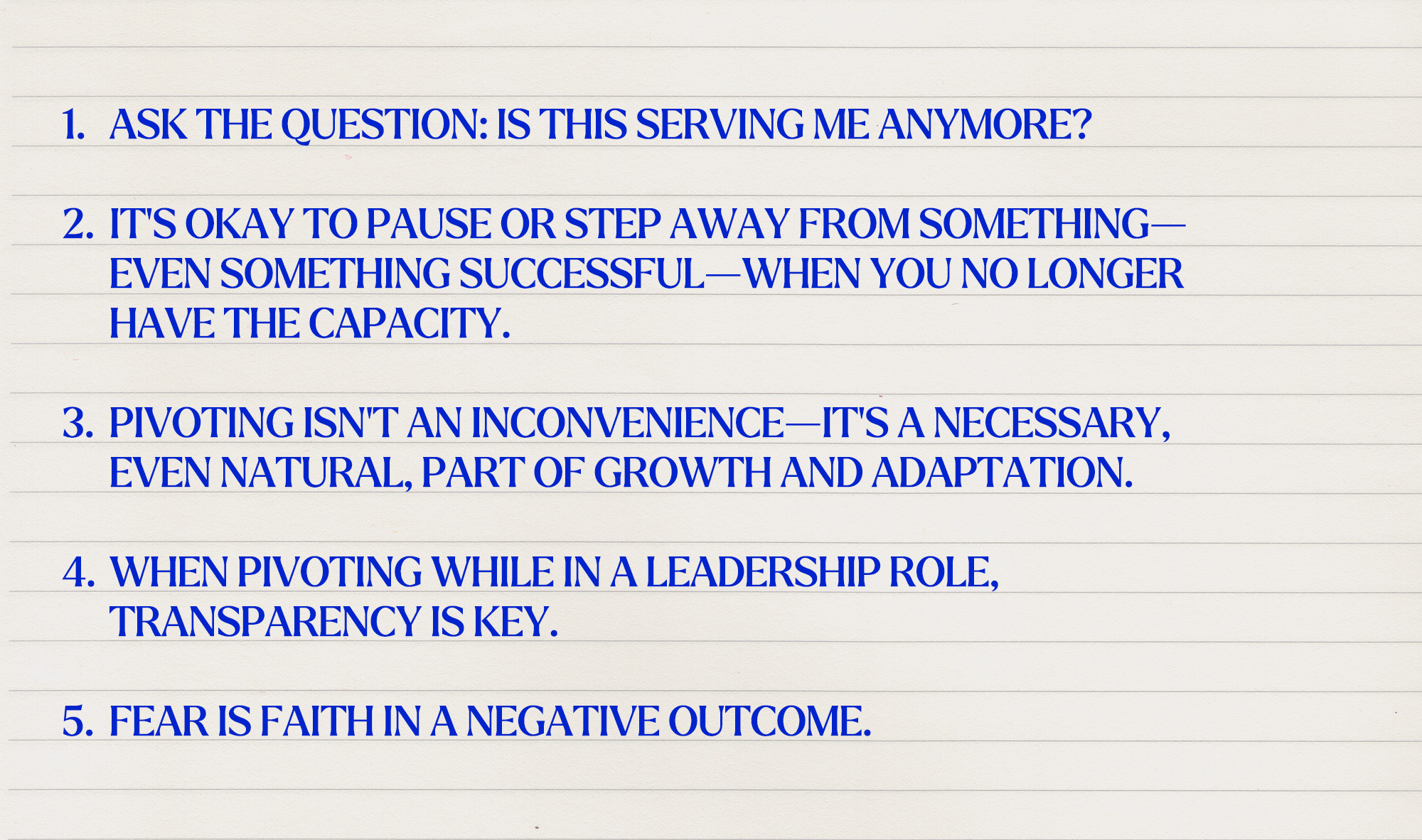Sponsor Content Created With Marshalls
How to Recognize When It's Time to Pivot in Your Career
Three female founders weigh in on the power of making a pivot.

Marie Claire brought its Power Play summit to Philadelphia on September 17 and 18, gathering visionary women to champion this year's central theme: Perseverance. The two-day event, presented by Marshalls, marked the second Power Play summit of the year and brought together a dynamic lineup of speakers from entertainment, sports, tech, and business.
For the first time in Power Play history, the second day of the event was opened to the broader Philadelphia community. This was made possible through a partnership with The Marshalls Good Stuff Social Club, the retailer's purpose-driven platform designed to give women access to the tools, resources, and communities needed to unlock the lives they want to live. The event invited ambitious guests to engage in a day of impactful programming, networking opportunities, and immersive activations designed to bridge the gap between their vision boards and their realities. Here are our top insights from this inspiring day.
It's time to rethink everything you know about quitting. Pivoting—whether it's changing paths or tweaking your process—is one of the most powerful and self-aware actions you can take. In a society that rewards hustle culture and burnout, it can be difficult to actually make a pivot, even after self-reflection has proven it to be a worthwhile decision. Thankfully, Neha Prakash, entertainment director at Marie Claire, had the opportunity to sit down with three female founders who shared stories about the power of making a pivot: Cybille St.Aude-Tate, author, chef, and co-founder of Honeysuckle Provisions; Emani Milan, influencer and founder of Crochet Maniwear; and Jungeun Park, founder of Cocktail Culture Co.
With any pivot, big or small, the first step is self-reflection. If something or someone is draining you rather than bringing you joy, growth, or value, it may be time to make a change. You don't have to start with a drastic change; you could just hit pause. Taking a break creates space for clarity and healing, allowing you to come back better and more informed. Overall, pivoting is a natural part of growth and adaptation, and when it's embraced with the right mindset, it can lead to deeper alignment with your purpose and values.
Our Top Takeaways

1. Ask the question: Is this serving me anymore?
"If it's not giving me joy, then something has to change. And I think that sets the roller coaster that sets the tone for everything else to kind of fall into place, for this divine occurrence to happen, where the light goes off, and I'm like, oh, snap, I don't need to do this anymore. We need to change." — Cybille St.Aude-Tate
If it's not bringing you joy, growth, or value, and is instead draining you emotionally or financially, it may be time to make a change. Self-reflection is the first step when making a pivot.
2. It's okay to pause or step away from something—even something successful—when you no longer have the capacity.
"The power of the pause is so important. You need time to reset and think about what you want to do next. You don't have to immediately have the answers lined up." — Neha Prakash
Taking a break doesn't mean failure. It can create space for clarity, healing, and a new direction. When you return, you may find a deeper, more meaningful purpose for your work, often transforming it into something more impactful than you originally imagined.
3. Pivoting isn't an inconvenience—it's a necessary, natural part of growth and adaptation.
"I think for a lot of folks, pivoting tends to feel like an inconvenience, and so that already shifts my mindset, right? It's not an inconvenience. This is a necessary thing, and sometimes, in my situation, like maybe this is also my destiny." — St.Aude-Tate
When embraced with the right mindset, pivoting can lead to deeper alignment with your purpose and values.
4. When pivoting while in a leadership role, transparency is key.
"We find that if we're fully transparent with our team, it goes a long way. Sometimes, I just have to be honest and say we're pivoting because we just can't do it right or this is not serving us." — St.Aude-Tate
Being transparent with your team about why you're pivoting builds trust and fosters understanding.
5. Fear is faith in a negative outcome.
"There are two definitions of [fear] or two ways you can look at it: Forget everything and run, or face everything and rise." — Jungeun Park
Reframe how you look at fear. Place your faith in a positive outcome rather than a negative one. This mindset shift helps you overcome fear by letting you focus on possibilities rather than worst-case scenarios, especially when others rely on you.
Discover more about Power Play Philadelphia and The Marshalls Good Stuff Social Club here.
Get exclusive access to fashion and beauty trends, hot-off-the-press celebrity news, and more.
Marie Claire is committed to celebrating the richness and scope of women's lives. We're known for our award-winning features, thoughtful essays and op-eds, deep commitment to sustainable fashion, and buzzy interviews and reviews. Reaching millions of women every month, MarieClaire.com is an internationally-recognized destination for celebrity news, fashion trends, beauty recommendations, and renowned investigative packages.


